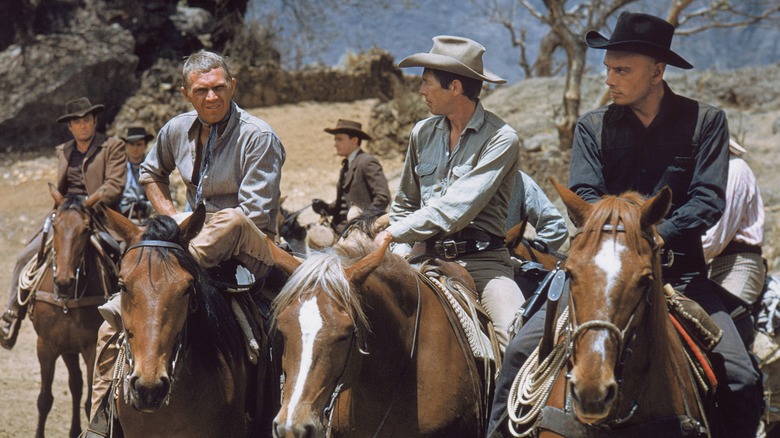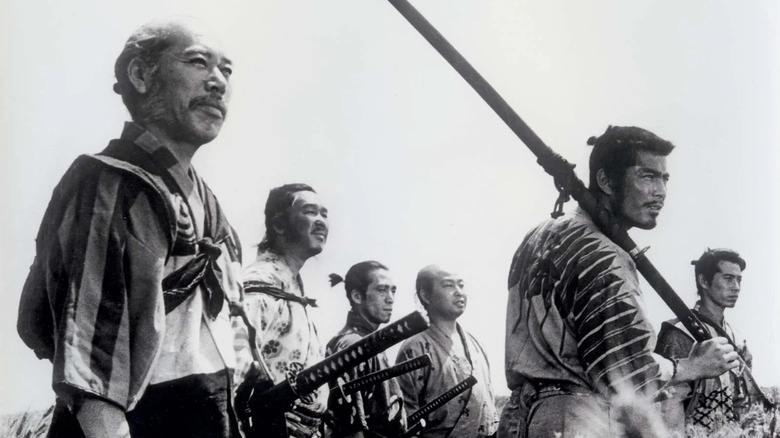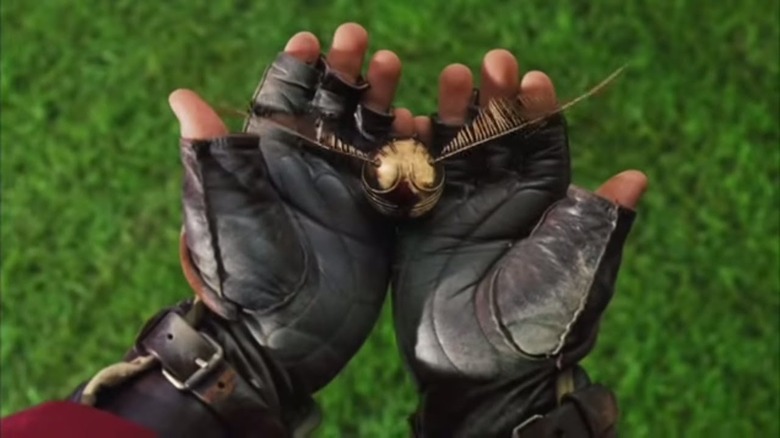Stephen King Used Seven Samurai And Its Western Remake In His Dark Tower Series
Among the "Dark Tower" fandom, the typical consensus is that the first four books were amazing, and the final three books were a step down. There are a lot of reasons for this view. The big one is that books 5 through 7 were each written in rapid succession; after taking his sweet time with the first four, a post-car accident Stephen King seemingly wrote the final three books in one frantic burst. There's a sloppiness to the writing (especially with some of the anti-climactic villain deaths in book 7) that seems like it could easily be attributed to King rushing his way to the finish line.
But despite the way the final three novels tend to clump together in readers' minds, the fifth book ("Wolves of the Calla") is still very much its own distinct thing, and deserves to be treated as such. "Song of Susannah" might feel like a total bridge novel, designed solely to set up the finale, but "Calla" has a self-contained storyline where Roland's gang (sorry, his ka-tet) roll up to a small town and decide to help the villagers in their time of need.
What's the town's problem? Well, there's a group of mysterious robotic wolves that descend upon the town once per generation, kidnapping half their kids and sending them back lobotomized. Upon hearing this, the ka-tet put their quest for the Dark Tower on hold and spend the next few months learning and preparing for the next attack. It all builds up to an exciting climactic battle, where the wolves are defeated not just by the ka-tet, but by the villagers who've learned from them over the course of the story. Sound familiar? That's because it wasn't King's most original idea.
King borrowed from both Magnificent Seven and Seven Samurai
"I decided to see if I couldn't retell 'Seven Samurai,' that Kurosawa film, and 'The Magnificent Seven,'" King explained in a 2006 interview. "The story is the same, of course, in both cases. It's about these farmers who hire gunslingers to defend their town against bandits, who keep coming to steal their crops. But I wanted to up the ante a little bit. So in my version, instead of crops, the bandits steal children."
This fact should be no surprise to King fans, as the book itself opens up with a quote from "The Magnificent Seven." It reads "'Mister, we deal in lead.' — Steve McQueen." Borrowing from the film is totally fair game, especially as "Magnificent Seven" took the same basic concept of "Seven Samurai" and simply transitioned it to the Western genre. King seemed to fully understand why the basic concept had such an obvious appeal: It's exciting to watch a bunch of competent badasses help an underdog small town defend themselves from a scary, despicable foe. (That's why even Pixar did its own riff on the premise with 1998's "A Bug's Life.")
King also understood that more compelling than the battle itself was all the character work that came before it. The best part of both movies is watching the Samurai/gunmen bond with the villagers, with the tough guys learn a thing or two themselves along the way. Roland, Eddie, Susannah, and Jake may never return to Calla after this book, but after spending 800 pages in it, the people of Calla will be remembered as old friends.
The Dark Tower books are filled with fun references
It might seem odd for the fifth "Dark Tower" book to draw so heavily from a popular movie, but that's nothing new for the series. The fourth book, "Wizard and Glass," had an ending that was filled to the brim with "Wizard of Oz" references. The second book in the series, "Drawing of the Three," featured a moment where a character compares something to a scene in "The Shining." That was also the first real hint that we were heading into mind-breaking meta territory, because how could a character in a Stephen King book be aware of a movie based on a Stephen King book?
"Wolves of the Calla" wasn't content to stick to just one movie reference either. It also mentions the golden snitches from "Harry Potter" and lightsabers from "Star Wars." Moreover, the book reads much better if you're already familiar with King's 1975 novel "Salem's Lot" or have at least seen the 1979 and/or 2004 mini-series — because a major character from that book unexpectedly pops up in "Calla" and plays a pretty significant role.
It's all cool stuff, although it does make the "Dark Tower" books even more difficult to adapt than they would've been otherwise. How will showrunner Mike Flanagan handle all these pop culture references in his upcoming Prime Video adaptation? Will he dial down the outside references or ramp them up even further? We'll just have to wait and see.


